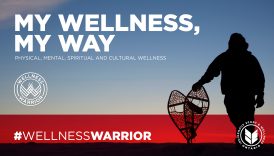The Importance of Self-Care Practices for a Balanced and Healthy Life

Definition of Self-Care
Self-care is often misunderstood, yet it is essential for overall well-being. At its core, self-care refers to the conscious actions individuals take to maintain and improve their physical, mental, and emotional health. This can encompass a wide range of activities—anything from ensuring adequate sleep and nutrition to indulging in hobbies or simply ensuring a moment of stillness in a busy day. For example, Sarah, a marketing professional, realized the importance of self-care after feeling burnt out from her demanding job. By dedicating time each evening to read or practice yoga, she not only rejuvenated her spirit but also enhanced her productivity at work.
- The Importance of Self-Care Practices for a Balanced and Healthy Life
- Definition of Self-Care
- Significance of Self-Care in Daily Life
- Physical Self-Care
- Importance of Exercise
- Benefits of Proper Nutrition
- Mental and Emotional Self-Care
- Stress Management Techniques
- Practicing Mindfulness
- Social Self-Care
- Nurturing Relationships
- Setting Boundaries in Social Interactions
- Spiritual Self-Care
- Meditation and Reflection
- Connecting with Inner Values
- Work-Life Balance
- Importance of Setting Priorities
- Creating Healthy Work Habits
- Self-Care for Better Sleep
- Establishing a Bedtime Routine
- Improving Sleep Environment
- Personal Development
- Setting Goals and Intentions
- Learning to Accept and Reflect on Mistakes
Significance of Self-Care in Daily Life
In daily life, self-care is a necessity, not a luxury. Incorporating self-care practices can lead to:
- Enhanced Mood: Regular self-care can significantly uplift one’s emotional state.
- Improved Health: Simple practices like exercise and proper nutrition can prevent various health issues.
- Increased Productivity: When one feels balanced, they can perform better in both personal and professional arenas.
In essence, self-care nurtures our ability to manage life’s challenges, enabling us to lead fulfilling lives while maintaining a healthy balance.
Physical Self-Care
Importance of Exercise
Continuing on the journey of self-care, physical self-care plays a pivotal role in shaping our overall well-being. One of the most crucial components of physical self-care is exercise. Regular physical activity is not just about weight management; it profoundly impacts mental health, boosting mood and decreasing anxiety. Take John, who committed to running three times a week. Initially, it was challenging, but gradually he noticed enhanced energy levels and a clearer mind, even at work. It’s amazing how just a few bursts of physical activity can transform your perspective! Key benefits of incorporating exercise into your routine include:
- Increased Energy Levels: Regular workouts can combat fatigue.
- Enhanced Mental Clarity: A good sweat session often results in sharper concentration.
- Better Sleep Quality: Physical activity can help regulate sleep patterns.
Benefits of Proper Nutrition
Equally important is proper nutrition. The saying “you are what you eat” holds true! Nutritious food fuels the body and mind, helping individuals feel vibrant and focused. Consider Lisa, who opted for a balanced diet rich in fruits, vegetables, and whole grains. She found that not only did her physical energy improve, but her emotional resilience strengthened, making her better equipped to handle life’s stresses. The benefits of proper nutrition include:
- Weight Management: Balanced meals help maintain a healthy weight.
- Boosted Immune System: Nutrient-rich foods fortify the body against illness.
- Enhanced Mood Stability: Certain foods, like omega-3 fatty acids, can positively affect mood.
Together, exercise and proper nutrition form the backbone of physical self-care, empowering individuals to thrive in their daily lives.
Mental and Emotional Self-Care
Stress Management Techniques
As we continue exploring the realm of self-care, mental and emotional well-being are equally vital. Developing effective stress management techniques can be a game-changer in maintaining a balanced life. For instance, Emily found herself overwhelmed by work deadlines and personal commitments. After discovering techniques like deep breathing and time management, she learned to approach each day with a clearer mindset. Some impactful stress management techniques include:
- Deep Breathing Exercises: Taking a moment to focus on your breath can significantly reduce tension.
- Physical Activity: Even a short walk can shift your mood and alleviate stress.
- Time Blocking: Organizing tasks in a schedule can help prioritize what truly matters.
Practicing Mindfulness
In addition to stress management, practicing mindfulness can enhance emotional well-being. Mindfulness encourages being present and fully engaged in the moment, which helps to combat feelings of anxiety or depression. For instance, Michael started incorporating mindfulness meditation into his morning routine. By simply taking ten minutes to focus on his breath and thoughts, he found he was more centered throughout the day, responding rather than reacting to situations. Key benefits of mindfulness include:
- Improved Emotional Regulation: Mindfulness fosters self-awareness and better emotional responses.
- Enhanced Focus: Being present can sharpen concentration and productivity.
- Reduced Anxiety: Mindfulness techniques can effectively mitigate anxious thoughts.
By employing these mental and emotional self-care practices, individuals can cultivate resilience and foster a more balanced, fulfilling life.
Social Self-Care
Nurturing Relationships
Transitioning into social self-care, fostering and nurturing relationships is fundamental to emotional health. Humans are social beings, and maintaining meaningful connections can significantly enhance one’s overall well-being. For example, consider Alex, who realized that his busy work life led to distancing from close friends. By prioritizing weekly catch-ups, he not only rekindled those bonds but also found comfort and support during challenging times. To nurture relationships effectively, one can:
- Schedule Regular Check-Ins: Even a quick text or call can strengthen bonds.
- Be Present: When spending time with loved ones, focus your attention entirely on them.
- Participate in Shared Activities: Engaging in hobbies together can deepen connections.
Setting Boundaries in Social Interactions
Just as nurturing is essential, setting boundaries in social interactions is equally important for mental health. Establishing limits helps protect personal time and energy, preventing burnout. For instance, Jess found that saying “no” to social events that drained her emotionally allowed her to recharge and focus on activities that brought her joy. Effective strategies for setting boundaries include:
- Knowing Your Limits: Reflect on what you can handle without feeling overwhelmed.
- Communicating Clearly: Be honest but kind when expressing your needs.
- Prioritizing Yourself: Recognize that it’s okay to decline invitations for the sake of self-care.
By balancing nurturing relationships with healthy boundaries, individuals can cultivate a supportive social network that contributes positively to their mental and emotional well-being.
Spiritual Self-Care
Meditation and Reflection
Moving into the realm of spiritual self-care, it’s essential to embrace practices that foster a deeper sense of purpose and connection. Meditation and reflection serve as powerful tools for self-exploration. For example, Laura discovered meditation during a particularly hectic period in her life. By dedicating quiet moments each day to meditate, she gained clarity and serenity, allowing her to reconnect with her inner self. Incorporating meditation and reflection into one’s routine can offer several benefits:
- Reduced Anxiety: Regular meditation has been shown to calm the mind and decrease stress.
- Enhanced Self-Awareness: Reflective practices encourage deeper understanding of one’s thoughts and feelings.
- Improved Focus: Meditation trains the brain to concentrate better on tasks.
Connecting with Inner Values
In addition to meditation, connecting with personal values is crucial for spiritual self-care. Understanding what truly matters can guide decisions and actions, creating a more fulfilling life. For instance, Mark took the time to identify his core values, such as family and community service. This clarity motivated him to volunteer regularly, enriching his sense of purpose. To connect with inner values, consider these steps:
- Journaling: Write about what inspires and moves you to spark clarity.
- Setting Intentions: Begin each day by contemplating your priorities and what you want to achieve that aligns with your values.
- Engaging in Meaningful Activities: Participate in endeavors that resonate with your beliefs and passions.
By embracing meditation and connecting with inner values, individuals can nurture their spiritual selves, leading to a more balanced, purpose-driven life.
Work-Life Balance
Importance of Setting Priorities
As we delve into work-life balance, it becomes essential to discuss the importance of setting priorities. In a world that often glorifies busyness, focusing on what truly matters can drastically enhance both productivity and personal satisfaction. For instance, Jenna, a project manager, found herself overwhelmed by tasks. By taking a step back to prioritize her responsibilities, she identified which projects aligned best with her long-term goals. Here are some ways to effectively set priorities:
- Use the Eisenhower Matrix: Distinguish between what is urgent and what is most important to tackle tasks efficiently.
- Create Daily To-Do Lists: This simple act helps visualize goals and enables one to focus on essential tasks.
- Reflect Weekly: Spend some time each week assessing what needs more attention for the upcoming week.
Creating Healthy Work Habits
Along with prioritization, creating healthy work habits is crucial for maintaining work-life balance. For example, Sam recognized that his tendency to check emails after hours affected his downtime. By establishing a “no work after 6 PM” rule, he improved both his personal and professional life. Consider these strategies for cultivating healthy work habits:
- Set Clear Boundaries: Determine specific work hours and stick to them.
- Take Regular Breaks: Short breaks throughout the day can boost focus and reduce burnout.
- Embrace Flexible Working Arrangements: When possible, explore options like remote work or adjusted schedules.
By prioritizing responsibilities and cultivating healthy work habits, individuals can foster a more harmonious balance between their professional and personal lives.
Self-Care for Better Sleep
Establishing a Bedtime Routine
Continuing our journey into self-care, let’s explore the importance of improving sleep quality. A significant element of achieving restful sleep is establishing a bedtime routine. A consistent routine signals to the body that it’s time to wind down. For instance, Laura discovered that by incorporating a series of calming activities before bed, like reading or gentle stretching, she not only fell asleep faster but also enjoyed deeper sleep. To create an effective bedtime routine, consider these tips:
- Set a Consistent Sleep Schedule: Aim to go to bed and wake up at the same times every day, even on weekends.
- Wind Down an Hour Before Sleep: Engage in relaxing activities, such as meditation or a warm bath.
- Limit Screen Time: Reducing exposure to screens at least 30 minutes before bed can enhance sleep quality.
Improving Sleep Environment
Alongside a bedtime routine, improving the sleep environment plays a crucial role in achieving restful nights. For example, Mark transformed his bedroom into a serene sanctuary by minimizing noise, darkness, and distractions. Here are some strategies to enhance your sleep environment:
- Keep the Room Dark: Use blackout curtains or an eye mask to block out light.
- Maintain a Comfortable Temperature: A slightly cooler room is typically conducive to better sleep.
- Reduce Noise: Consider white noise machines or earplugs if external sounds disturb your rest.
By establishing a calming bedtime routine and improving the sleep environment, individuals can significantly elevate their quality of sleep, leading to better overall health and well-being.
Personal Development
Setting Goals and Intentions
As we move forward in our self-care journey, the concept of personal development becomes increasingly significant. One effective way to foster growth is through setting clear goals and intentions. For instance, when Sarah decided to improve her fitness, she crafted specific, attainable goals such as running a 5K and incorporating strength training into her weekly routine. Having a clear path helped keep her motivated and focused. When setting goals and intentions, consider these strategies:
- Use the SMART Criteria: Ensure your goals are Specific, Measurable, Achievable, Relevant, and Time-bound.
- Write Them Down: Committing your goals to paper can reinforce accountability and keep you on track.
- Create a Vision Board: Visualizing your intentions through images and quotes can foster a positive mindset and remind you of your aspirations.
Learning to Accept and Reflect on Mistakes
Another vital aspect of personal development is learning to accept and reflect on mistakes. Everyone makes them; it’s part of being human! For example, when Alex missed an important deadline at work, he initially felt discouraged. However, by reflecting on the experience and identifying what he could improve in his time management skills, he transformed a setback into a valuable learning opportunity. To embrace mistakes constructively, try:
- Journaling: Write about your experiences, focusing on what you learned, not just what went wrong.
- Seeking Feedback: Open yourself up to constructive criticism to gain different perspectives.
- Practicing Self-Compassion: Remember that growth comes from imperfection; treat yourself kindly during setbacks.
By setting intentions and learning from mistakes, individuals can pave the way for continuous personal development and a more fulfilling life.




